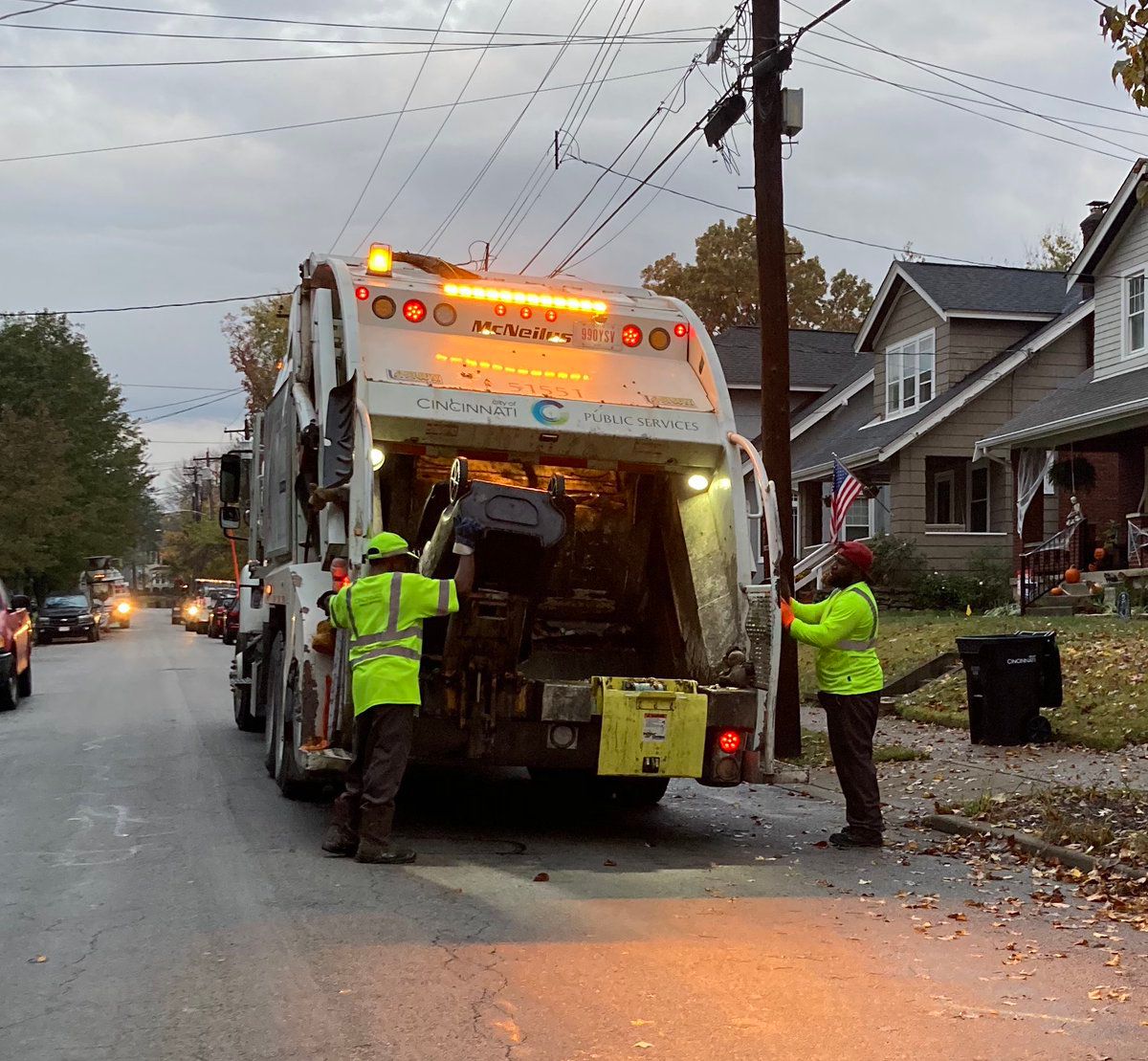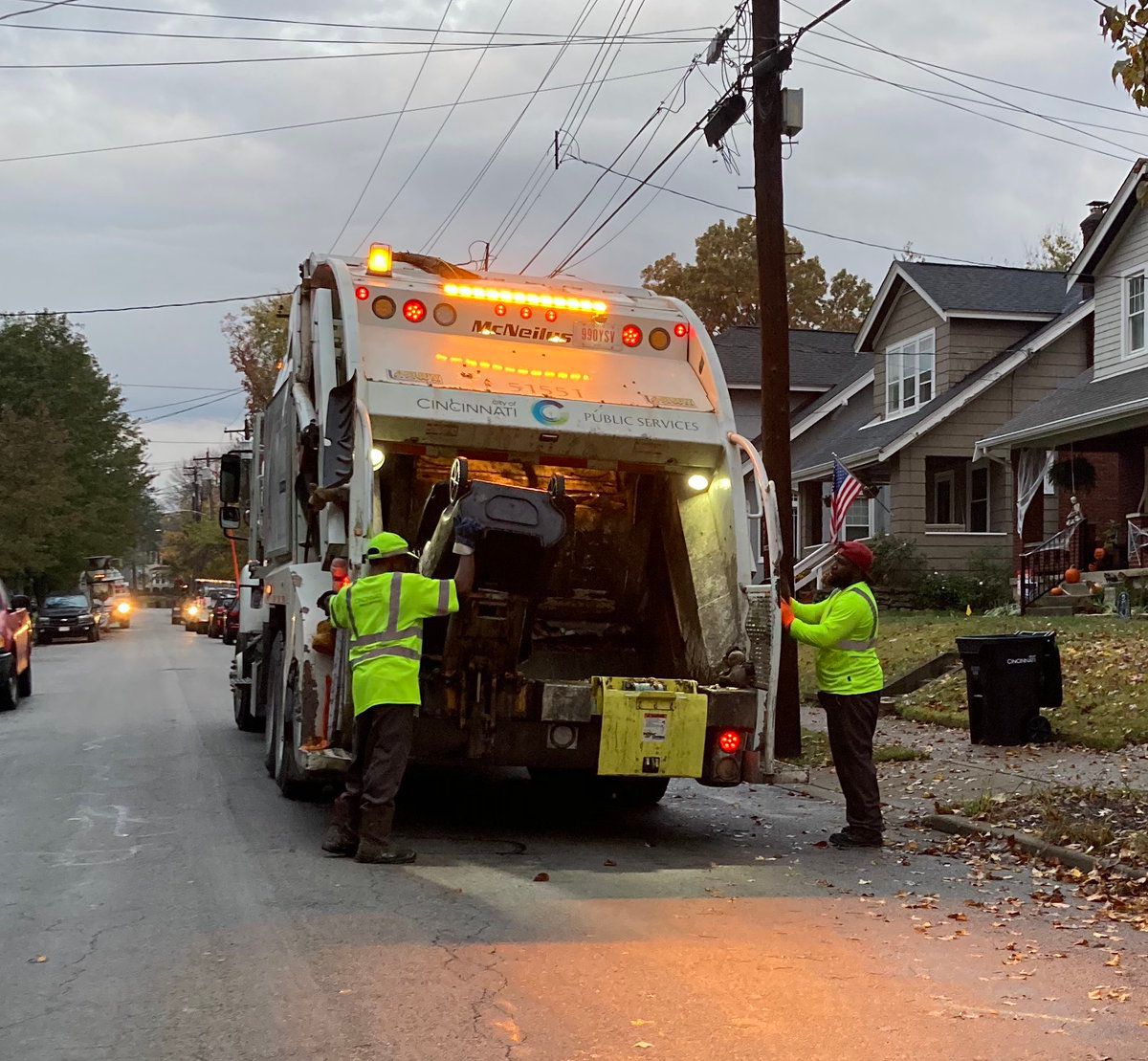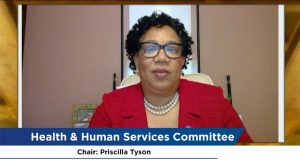CINCINNATI — Hamilton County Auditor Dusty Rhodes has filed a personal lawsuit against the city of Cincinnati for collecting earnings tax from nonresidents who work from home.
The city’s 1.8% earnings tax is the primary funding source for Cincinnati’s operating budget. The money supports most city operations, including things like police and fire services and trash collection.
State legislators passed a temporary measure last year to allow cities to receive earnings tax funds from people who typically work within city limits but are working remotely due to the pandemic.
Rhodes argues that’s illegal. He wants the city to pay back any such tax money it collected over the past year.
That could result in the city having to pay back millions of dollars.

Cincinnati garbage truck and sanitation workers (Provided: City of Cincinnati)
“My contention is a city should not be able to reach outside its corporate limits and levy a tax on people who don’t live or work there. Simple as that,” said Rhodes, who lives in Delhi Township.
“It sets a bad precedent and is simply wrong.”
Rhodes filed the lawsuit as a resident, not in his official capacity, he said. He co-filed it last week with two other residents: one from Clermont County and another from Northern Kentucky.
If a judge sides with Rhodes and the other plaintiffs, the city may have to pay that money back.
“This would be devastating and I’m not sure what good comes from devastating the central cities, which are the drivers for the entire area,” said Council Member David Mann, who chairs the city’s Budget & Finance Committee.
Mann said he’s not sure exactly how many people this would affect or exactly how much money. But he said about 70% of the city’s earnings tax revenue comes from people who live outside Cincinnati city limits.
In a typical year, earnings tax is the largest single source of general fund revenue for Cincinnati’s budget, at between 70-72%. The reliance this year is considerably lower — about 60.1% — due to the pandemic and an influx of American Rescue Plan funds from the federal government.
The city of Cincinnati just last week passed its budget for the upcoming fiscal year.
Mann said the city’s responsibility to maintain services to city businesses, and the city infrastructure surrounding those businesses, doesn’t stop just because some employees are working from home.
“He’s the county auditor,” Mann said of Rhodes. “He has an office in the (Hamilton County) administration building in the middle of the city.
“If there’s a fire, we respond. If there are crime problems, we respond. If there’s snow, we remove the snow. We maintain the streets,” Mann said. “There’s a long list of things that don’t stop in terms of the city’s responsibility, just because the county auditor decides to spend some of his time working outside the city.”
Mann said someone having to work remotely due to the pandemic is “quite different” from somebody who makes a voluntary choice to work from home.
“Where there’s a place of employment that takes advantage of all the city provides, I think that’s quite different,” he added. “I think the judge that takes it up sees it that way, I hope so.”
As it stands today, collection of earnings tax from nonresident remote workers will end July 18. That’s the permitted 30-day limit after Gov. Mike DeWine ended statewide emergency orders related to COVID-19.
Mann said the city anticipated that collection from nonresident remote workers would likely end in 2021 so it would be easier to deal with.
But having to pay back money that has already been collected would be an “administrative nightmare.”
“Some of (remote workers) live in jurisdictions that have their own earnings tax and they get credit for what they pay the city of Cincinnati. So, if they get a refund from us, they have to turn around and pay the jurisdiction where they live so they’re may not be much incentive for them to pursue that,” he said.
“Now, if you live in an unincorporated area like Dusty Rhodes does, in Delhi, whatever he is successful in obtaining a refund claim he would get to keep, so maybe he has more of an incentive.”
In response to a request for comment, Kelly Carr, with the city of Cincinnati, issued the following statement:
“The City Administration does not comment on active litigation,” she said. “…[A]s with any lawsuit filed against the City, the City Solicitor’s Office will evaluate claims made by the plaintiff, determine whether the claims have merit, and defend the City against wrongful claims to the full extent of Ohio law.”
The Buckeye Institute, an independent research organization, filed similar lawsuits against the city of Cincinnati and other major cities earlier this year. A judge dismissed the case against Cincinnati this month but the decision is in the process of appeal.
“While the lawsuit we filed on behalf of Mr. Rhodes and others has some similarities or overlap with that other lawsuit, we are also presenting in this latest case new and distinct legal arguments which have not yet been raised or presented to any court,” said Rhodes attorney, Curt Hartman.




